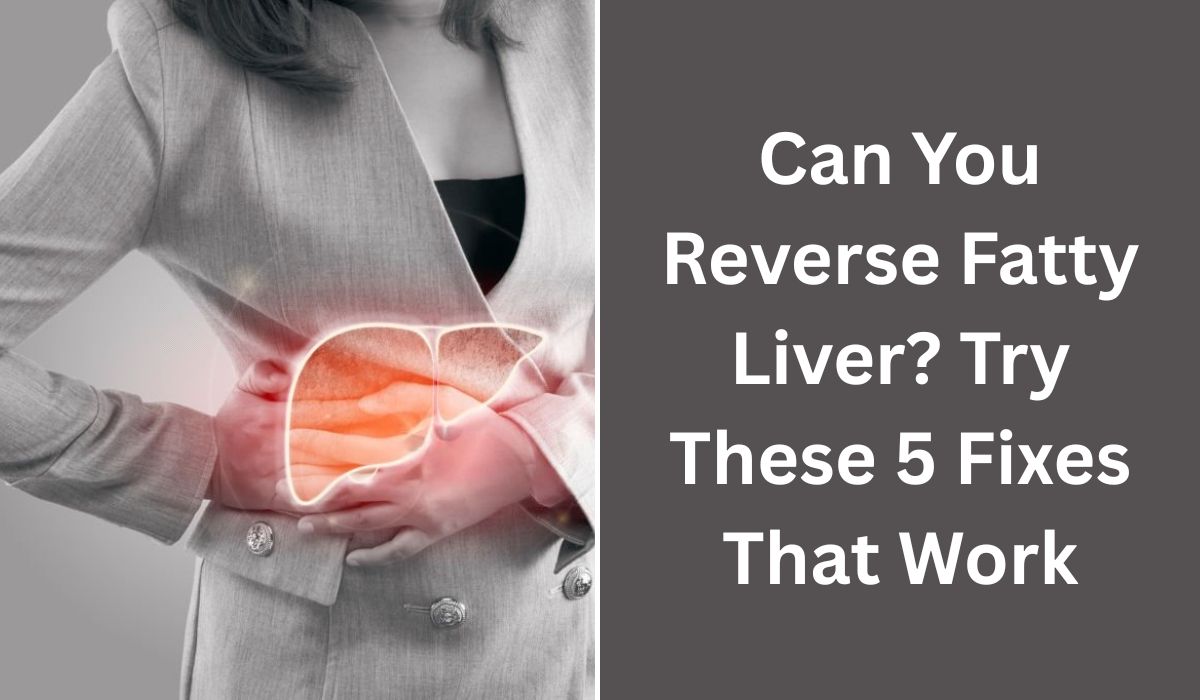What is Fatty Liver Disease?
Fatty liver disease, especially Non-Alcoholic Fatty Liver Disease (NAFLD), happens when excess fat builds up in liver cells. It’s often called a “silent disease” because symptoms are rare until it becomes serious. But here’s the good news:
Fatty liver is reversible, especially in its early stages.
Let’s dive into 5 research-backed lifestyle changes that can help you start reversing fatty liver today.
1. Eat Clean, Eat Smart
The Fix: Focus on a low-sugar, low-carb, whole-foods diet.
Best foods for fatty liver:
- Leafy greens (spinach, kale)
- Cruciferous veggies (broccoli, cauliflower)
- Lean protein (chicken, fish, legumes)
- Healthy fats (nuts, avocado, olive oil)
- Whole grains (quinoa, oats, brown rice)
Avoid:
- Sugary beverages
- Processed snacks
- White bread, pasta, and baked goods
Why it works: Clean eating reduces liver inflammation and helps eliminate excess fat deposits in the liver.
2. Lose 5–10% of Your Body Weight
The Fix: Even a small amount of weight loss can make a big difference.
Pro Tip:
- Aim for 1–2 pounds per week
- Avoid crash diets
- Use portion control and mindful eating
Science says: Losing 5–10% of your body weight can reduce liver fat, fibrosis, and inflammation significantly.
3. Exercise Regularly
The Fix: Incorporate at least 150 minutes of moderate exercise per week.

Best activities:
- Brisk walking
- Yoga or Pilates
- Cycling
- Strength training (2–3 times/week)
Why it helps: Physical activity burns liver fat and improves insulin sensitivity, both crucial for liver repair.
4. Say No to Alcohol
The Fix: Go alcohol-free — even light drinking can worsen liver damage.
Helpful alternatives:
- Sparkling water with lemon
- Herbal teas
- Alcohol-free mocktails
Reminder: Your liver is already working overtime — give it a break and let it recover.
5. Support with Liver-Friendly Nutrients
Certain natural supplements may enhance liver health (with your doctor’s approval).
Popular options:
- Milk Thistle (Silymarin)
- Turmeric/Curcumin
- Vitamin E (for non-diabetics with NAFLD)
- Omega-3s (found in fish oil)
Disclaimer: Always talk to your healthcare provider before starting any new supplement.
When to See a Doctor
While lifestyle changes are powerful, don’t skip medical checkups. Ask your doctor about:
- Liver function tests (ALT, AST)
- Ultrasound or FibroScan
- Blood sugar and cholesterol levels
Early intervention = better outcomes.
Reverse Fatty Liver Naturally
| Fix | Benefit |
| Eat Clean | Reduces liver fat & inflammation |
| Lose Weight | Improves liver enzymes & insulin sensitivity |
| Exercise | Burns fat, boosts metabolism |
| Quit Alcohol | Eases liver workload |
| Take Nutrients | Enhances liver repair (with doctor guidance) |
Final Words
Fatty liver is your body’s red flag — a wake-up call to make better choices. The best part? With consistent lifestyle changes, you can reverse the damage and feel more energetic, focused, and healthier.
So don’t wait — take the first step today.
FAQs
1. Can fatty liver disease really be reversed without medication?
Answer:
Yes, in many cases—especially in early stages like Non-Alcoholic Fatty Liver Disease (NAFLD)—fatty liver can be reversed naturally without medication. The key is adopting a healthy lifestyle: improving diet, exercising regularly, maintaining a healthy weight, avoiding alcohol, and managing conditions like diabetes or high cholesterol. However, regular checkups with your doctor are essential to track progress and rule out complications.
2. How long does it take to reverse fatty liver through lifestyle changes?
Answer:
The timeframe varies by individual, but many people see improvement in liver function and reduced liver fat within 3 to 6 months of consistent lifestyle changes. Losing even 5–10% of your body weight during this time can significantly improve liver health. Patience and consistency are crucial for long-term results.
3. Are there any symptoms of fatty liver I should watch for?
Answer:
Fatty liver often has no noticeable symptoms in its early stages, which is why it’s called a “silent disease.” However, as it progresses, you may experience:
- Fatigue
- Discomfort or pain in the upper right abdomen
- Weight gain or difficulty losing weight
- Elevated liver enzymes (seen in blood tests)
If you suspect fatty liver, consult your healthcare provider for proper diagnosis and monitoring.

